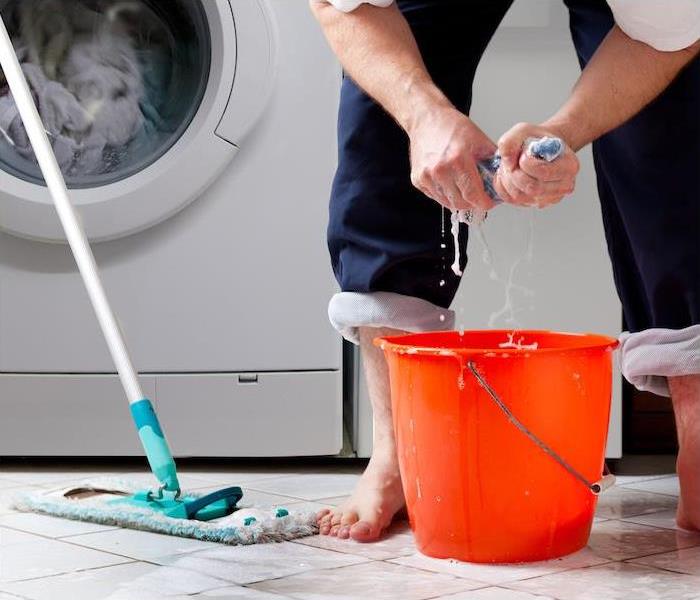Trust SERVPRO to Protect Your Home From Water Damage
3/6/2019 (Permalink)
Water damage is one of the most common and costliest disasters you may experience as a homeowner. There are countless ways water damage could strike your home, from a bursting pipe to malfunctioning appliances or even storm damage.
Since water damage is an especially common issue for homeowners to deal with, let’s take a look at some of the ways you can protect your home.
<h4your-home">Protecting Your Home
Not only is water damage a hassle to deal with, but if the cleanup afterward is not done properly, it can have a long-term impact on your home. Mold begins to grow in as little as 24–48 hours after moisture exposure and is one of the most common side effects of water damage.
As you start to think about ways to protect your home, it is helpful if you break it down by areas of impact—for example, basements, kitchens, bathrooms, flooring and ceilings.
Water seepage is a concern in basements, and you can help prevent water damage by locating vulnerable areas for water seepage and resealing those areas of the basement. You should also make sure water drains away from your home and install a backwater valve.
The kitchen and bathrooms often experience water damage as a result of plumbing system breakdowns, backups and appliance failures.
Be sure you:
- Inspect all appliances regularly, looking for issues with hoses and faucets
- Check all of the seals and caulking around your showers and tubs to make sure there is no leakage
- Know the location of the main water shut-off valve is in your home
- Don’t leave the house while the washer or dishwasher is running
Protecting the possessions in your home from water damage is not always possible, but there are ways you can at least decrease the amount of loss. By using waterproof bins to store items and storing things up off the floor, especially in the basement, you may be able to safeguard some of your possessions.
<h4from-water-damage">Recovering From Water Damage
You can stand a good chance at salvaging items that can be dried out within 48 hours if you find yourself in a water damage situation.
Make sure to contact your insurance company immediately and evaluate the extent of the water damage in your home as well as identify the type of water that is involved.
The three types of water are:
Rain water, condensation or leaky pipes, which is “clean” water
Slightly dirty water from dishwashers, washing machines, clean toilets, etc., which is “gray” water
Water from sewage or serious flooding from nearby rivers, etc., which can cause serious health problems is “black” water
Following a water damage disaster, as soon as it is safe, remove all wet objects, get your home dehumidified and dried out, and then disinfect any remaining materials.
Pro tip: You can freeze wet books, photos and papers in a frost-free freezer to buy some extra time. This prevents mold and mildew from developing and causing more deterioration. Once able, you can remove them from the freezer and air-dry or fan-dry the pages.
It may seem like recovering from water damage is an overwhelming and slightly impossible task, but it doesn’t have to be. You can call on the highly trained experts at SERVPRO® of Western Essex County, who are here to make it "Like it never even happened."






 24/7 Emergency Service
24/7 Emergency Service